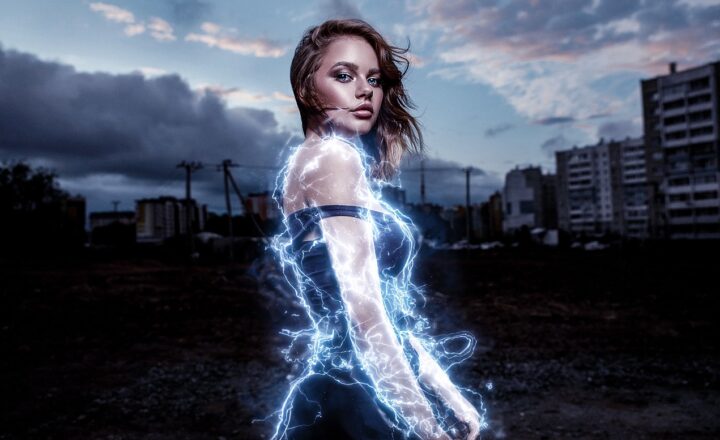10 Superhero Movies That Differ from Their Comic Originals
November 14, 2024

Superhero movies have dominated the box office for years, bringing iconic characters from comic books to life in ways that often differ significantly from their printed origins. While comic books often draw from myriad story arcs, filmmakers take liberties to create films that resonate with modern audiences or fit cinematic storytelling norms. In this article, we’ll explore ten superhero movies that diverge from their comic book counterparts in notable ways.
1. The Dark Knight (2008)
Christopher Nolan’s “The Dark Knight” redefined superhero cinema and brought a realistic tone to Gotham City. However, it diverged from the comic world by portraying the Joker, played by Heath Ledger, not just as a criminal but as an anarchist with a warped philosophy. In comics, the Joker’s motivations are often comedic and somewhat predictable, while Nolan’s adaptation offers a chilling and complex antagonist that challenges Batman’s morals and society’s structure.
2. X-Men: The Last Stand (2006)
This movie attempts to adapt the famous “The Dark Phoenix Saga” from the comics but differs drastically in execution. In the comics, Jean Grey’s transformation into the Phoenix was a nuanced and tragic storyline that explored her struggle with immense power. The film, however, crammed this intricate narrative into a single movie, leading to criticism for its reductionist approach and character development that felt rushed and shallow.
3. Iron Man 3 (2013)
While Iron Man 3 is a beloved entry in the Marvel Cinematic Universe, it took liberties with the character of the Mandarin, a classic Iron Man villain from the comics. In the film, the Mandarin, played by Ben Kingsley, is revealed to be a mere actor hired to impersonate the terrorist leader, eliminating the character’s original depth and narrative significance. The twist angered many comic fans who prized the Mandarin’s rich backstory and complex motivations.
4. MCU’s Thor (2011)
The movie presents Thor as a more relatable figure to modern audiences, emphasizing themes of humility and personal growth. In the comics, Thor is often portrayed as a god-like figure with little room for development. Kenneth Branagh’s film focuses on Thor’s exile from Asgard, which humanizes the character and contrasts sharply with his often one-dimensional portrayal in the comics, making him more appealing to a broader audience.
5. Man of Steel (2013)
Zack Snyder’s “Man of Steel” reimagined Superman’s origin story, presenting a grittier take on the hero’s impending arrival on Earth. Unlike the hopeful and idealistic Superman from the comics, Snyder’s version grapples with existential questions about identity and destiny. The film’s representation of Krypton and its destruction also takes significant creative liberties, crafting a narrative that feels distinctly different from the comic books that painted Krypton in a brighter light.
6. Deadpool (2016)
The film adaptation of “Deadpool” does a fantastic job of capturing the character’s irreverent humor and satirical nature; however, it introduces original elements that differ from the comics. For instance, the character’s origin story and the portrayal of key relationships, such as with Vanessa, are significantly altered for dramatic effect. While the comics often play on Deadpool’s break from reality in a more straightforward manner, the film mixes humor and a personal story arc seamlessly, creating a fresh interpretation that feels distinctly cinematic.
7. The Amazing Spider-Man (2012)
In contrast to Sam Raimi’s Spider-Man trilogy, which focused on Peter Parker’s evolution and relationships, “The Amazing Spider-Man” gave an overhaul to the character’s backstory and emphasized a mystery surrounding his parents. This pivot played into a different narrative direction that some fans found unnecessary, as the comics traditionally focus more on Peter’s personal struggles as a high school student rather than diving deep into parental issues. The movie’s choice to expand the lore around his family diverged from Peter’s core narrative in the comics.
8. Batman v Superman: Dawn of Justice (2016)
This film strays significantly from the comic portrayal of Superman and Batman, depicting them in an antagonistic light lacking the deep-rooted respect that often exists in their shared comic narratives. The film emphasizes conflict over the heroes’ criminal partnerships, creating a more divisive and aggressive relationship than comic readers are accustomed to. The underlying themes of fear and mistrust between the heroes shifts the dynamic dramatically away from iconic teamwork seen in the source material.
9. Venom (2018)
Marvel’s beloved anti-hero Venom underwent significant changes in his cinematic debut. In the comics, Venom is a complex character struggling between good and evil; however, the film chooses to lean heavily into action-comedy, often sidelining the darker tones from the comics in favor of humor. The protagonist’s relationship with the symbiote is portrayed as more of a buddy cop dynamic than the menacing partnership initially presented in the comics, softening Venom’s menace in favor of accessibility.
10. Suicide Squad (2016)
“Suicide Squad” features a wide range of interpretations of classic DC villains, diverging from established comic book narratives. Characters like Harley Quinn and Deadshot take on lighter tones that focus on humor rather than their traditionally darker story arcs. This shift from comic book lore sparked debate amongst fans, with some enjoying the fresh take while others felt it lost the essence of their comic counterparts. The portrayal of the team dynamics is ultimately a unique interpretation that contrasts starkly with their comic origins.
Conclusion
Superhero adaptations often traverse a fine line between authenticity and creative freedom, leading to a diverse spectrum of interpretations. The shifts in narrative choice highlight the evolving nature of storytelling across mediums. While comic fans may sometimes feel disheartened by the deviations, these films often spark new conversations about the beloved characters we know and love. The progressive reimagining of comic book stories helps keep these narratives relevant and engaging for both longtime fans and newcomers alike.






